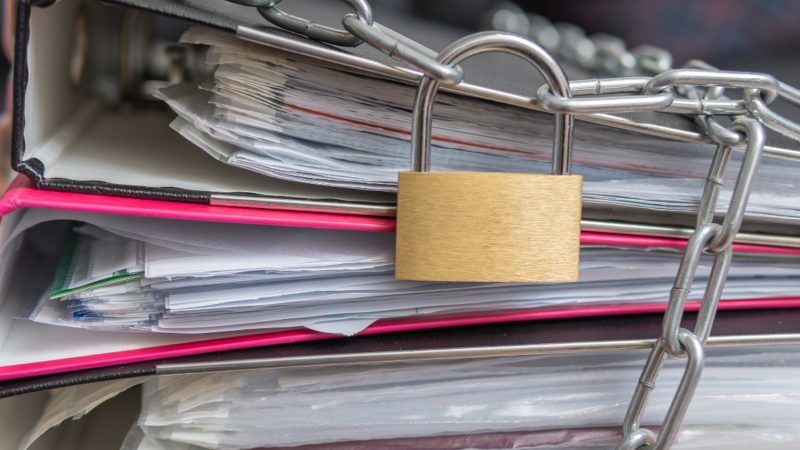Want Better Journalism and Less B.S.? Demand Stronger Public Record Laws.
Even if you despise the media, you should be rooting for better public record laws.

It's Sunshine Week—the week when reporters complain more than usual about government stonewalling and the government brags that it doesn't stonewall quite as often as it used to.
Sunshine Week intentionally coincides with the birthday of President James Madison, who wrote in 1822, "A popular government without popular information, or the means of acquiring it, is but a prologue to a farce or a tragedy."
To mark the event, the Justice Department announced that it was updating its guidance to federal agencies on applying the Freedom of Information Act (FOIA), the landmark law that guarantees public access to government records. Specifically, the Justice Department clarified how agencies should apply a presumption of openness and the "foreseeable harm" standard, which was codified into law in 2016. These standards were supposed to direct agencies to release public records, even when an exemption could apply, unless it foresees that disclosure would harm an interest protected by one of the nine FOIA exemptions.
"The guidelines make clear that the Justice Department will not defend nondisclosure decisions that fail to apply such a presumption," Associate Attorney General Vanita Gupta said this week. "And the guidelines also emphasize the importance of proactive disclosures and removing barriers to accessing government information."
Someone should alert the federal Bureau of Prisons (BOP). The Reason Foundation, which publishes Reason, filed a FOIA lawsuit against the BOP earlier this year to pry free records of inmate deaths at two federal women's prisons that have been dogged by allegations of unconstitutional medical neglect. The BOP frivolously redacted conclusions of mortality reviews from one prison and simply failed to turn over any records from another.
Unfortunately, this is not an unusual problem. As Anne Weismann, a veteran FOIA litigator, wrote this week, while the FOIA is a powerful and vital law on paper, government delays and obfuscation have neutered it in practice. That's why Micky Dolenz of The Monkees is suing the FBI for records on himself (he's not monkeying around), and why Bloomberg News is suing to discover if former President Donald Trump actually issued a "standing order" declassifying the boxes of documents he schlepped to his Mar-a-Lago resort.
If you need more examples, the folks at the Electronic Frontier Foundation have collected the worst of government stonewalling at the federal, state, and local levels for their annual ignominious award series, The Foilies. You can read about the feds censoring paintings from Gitmo detainees and a small New Jersey town suing an elderly woman for filing too many records requests.
Even if you despise the media, you should be rooting for more government transparency. Some of the worst journalism happens when no one has hard evidence one way or another and the only sources are government press releases and anonymous officials. Take for example the months of speculation surrounding the death of U.S. Capitol Police Officer Brian Sicknick, all of which was enabled by erroneous government statements and the fact that Capitol Police records and autopsy reports were confidential. As I wrote then, "In a vacuum of primary sources, bullshit will prevail. If you want faster, more accurate reporting, demand better public record laws and more transparency from officials."
The power-hungry demagogues and partisan pundits trying to tear this country apart dream of a perfectly fact-free environment where anything can be claimed and nothing can be confirmed. Strong public record laws are the antidote to the farces and tragedies they would inflict.

Show Comments (39)